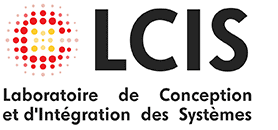ANN-based adaptive NMPC for uranium extraction-scrubbing operation in spent nuclear fuel treatment process
Résumé
This paper presents the particularities in optimal control of the uranium extractionscrubbing operation in the PUREX process. The control problem requires optimally stabilizing the system at a desired solvent saturation level, guaranteeing constraints, disturbance rejection, and adapting to set point variations. A qualified simulator named PAREX was developed by the
French Alternative Energies and Atomic Energy Commission (CEA) to simulate liquid-liquid extraction operations in the PUREX process. However, since the mathematical model is complex and is described by a system of nonlinear, stiff, high-dimensional differential-algebraic equations (DAE), applying optimal control methods will lead to a large-scale nonlinear programming problem with a huge computational burden. In this work, we propose a solution using a neural network to predict the process outputs using the history of measurements. This neural network architecture, which employs the long short-term memory (LSTM), linear regression and logistic regression networks, allows for reducing the number of state variables, thus reducing the complexity of the optimization problems in the control scheme. Based on this neural network, an adaptive optimal control scheme based on nonlinear model predictive control (NMPC) and moving horizon estimation (MHE) is developed. We use the particle swarm optimization algorithm to solve online optimization problems of NMPC and MHE. The algorithm is validated with simulations using a model that capture important dynamics of the process. This choice is because of confidential regulations of data obtained from the PAREX simulator. Simulation results show that the proposed adaptive optimal control scheme satisfies the requirements of the control problem.
| Origine | Fichiers produits par l'(les) auteur(s) |
|---|

